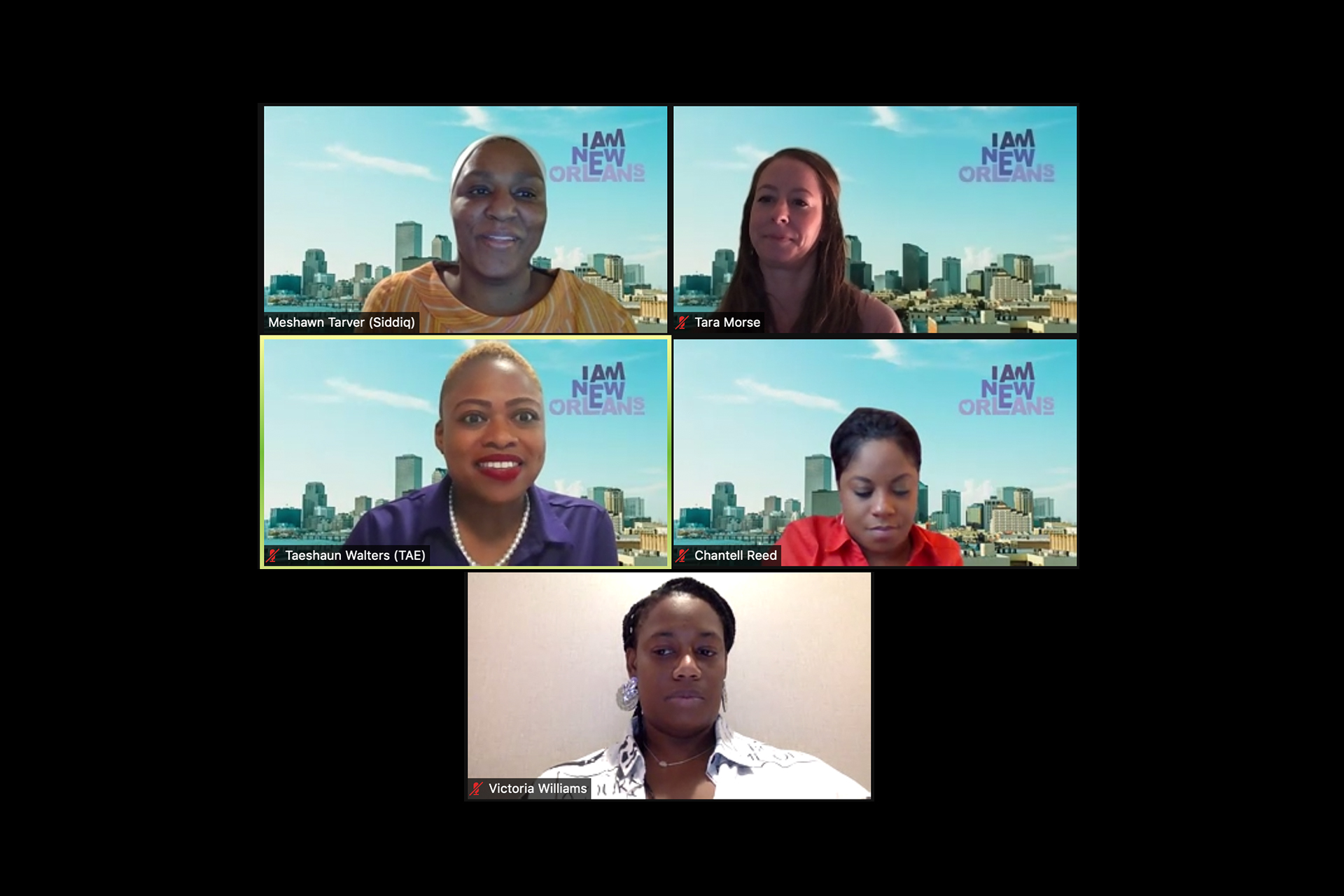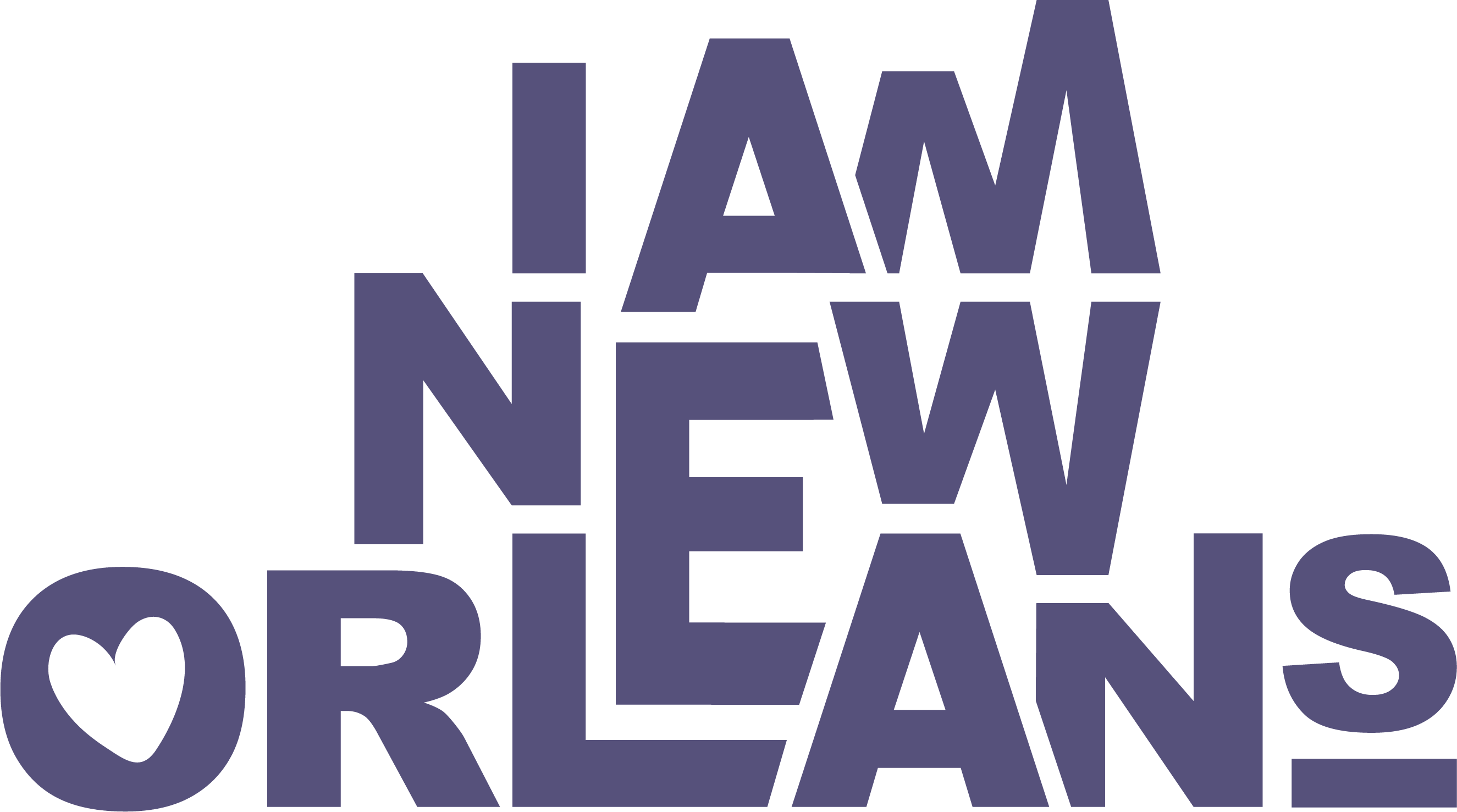A Breastfeeding-Friendly City is A Baby-Friendly City
“We need to make this part of our normal conversation. This has to be the norm. We have to set the tone for this is the foundation as a city, to support babies who are eventually going to grow into good citizens in the city.”
Chantell Reed, Director of Health for the City of New Orleans Tweet
New Orleans needs to “think outside the box” if it wants to become a breastfeeding-friendly city. So says Victoria Williams of New Orleans Breastfeeding Center and Birthmark Doula, and a speaker on the panel: A Breastfeeding-Friendly City is A Baby-Friendly City. The virtual event celebrated breastfeeding awareness month and Black breastfeeding week. It was part of I am New Orleans, a community-led conversation series to inspire dialog and action around issues of racial equity in New Orleans.
About 4,600 babies are born in New Orleans each year, yet moms are battling cultural and societal stigmas that dissuade them from breastfeeding. This includes generational historical trauma for when enslaved Black women were forced to serve as wet nurses for their White owners, and the sexualization of breasts and shunning of moms who feed publicly.
“The matriarch of those in our family who say negative things about breastfeeding, like ‘you’re gay if you’re letting your baby breastfeed,’ … those stigmas are still there in 2021. We’re working to break those,” Williams said.
Additionally, a lack of access to resources, such as lactation consultants and breast pumps, and unfriendly workplace policies make it difficult for women, especially low-income and working moms, to sustain their breastfeeding journey.
Taeshaun Walters, lactation counselor and parent educator at WE PLAY, said it’s time to normalize breastfeeding.
“Social media is a big aspect we can use to our advantage. So many moms, especially teen moms, need to see images. Let’s put pictures of mamas breastfeeding in the city,” she said.
Added Chantell Reed, director of health for the City of New Orleans: “The more we talk about it – the more it’s not sexualized – the stigmas start to come down. We need to make this part of our normal conversation. This has to be the norm. We have to set the tone for this is the foundation as a city, to support babies who are eventually going to grow into good citizens in the city.”
Dr. Tara Morse, OB-GYN at Crescent City Physicians, Inc., a subsidiary of Touro Infirmary, said implicit bias is steeped in the health care system. As an example, Black women more often are pushed to start their babies on formula. She advocated for funding doulas and community partners who support moms and their families, providing breast pumps before babies are born and supporting moms post-partum.
“We need better lactation support in the hospitals. We need to get our healthcare partners on board and we need to get our insurance plans on board,” Morse said.
“We change the trajectory of people’s lives. I’m changing generational birth experiences,” Williams added. “We have to get (that this) is not a one instance in life. …That’s how we become a breastfeeding friendly city. Invest in your doulas. Invest in your community health partners. Let’s start thinking outside the box.”
Reed said it’s up to the city to create workplace policies locally that make sense for employers and can be scaled regionally and federally.
“We have to frame our work in the community for how we want policy to be driven,” she said. “It has to make sense for employers so they’re more open and receptive. It’s a policy thing for me.”
So how does New Orleans become a breastfeeding friendly city?
“We have to make sure the message touches everyone,” Reed said. “Whether it’s us or our families who support us, they have to hear the message and understand it. In order for us to be a healthy city, we need to be a breastfeeding city.
“…This impacts us as a greater part of the community. … It’s our civic responsibility. We have to change the narrative and we have control over the narrative we build. And it starts with us.”

Full panel discussion
Related Links
- Labor and Love
- New Orleans Breastfeeding Center
- Greater New Orleans Lactation Visits
- NOLA Baby Cafe
- Cafe au Lait
- Café con Leche
- Institute of Women & Ethnic Studies
- Louisiana Healthcare Connections
- Crescent City Farmers Market’s Market Mommas Club
- Health Start New Orleans
- ACLU The Challenges of Breastfeeding as a Black Person
- CDC: How Communities Can Help Mothers Breastfeed
- CDC: The CDC Guide to Strategies to Support Breastfeeding Mothers and Babies
- U.S. National Library of Medicine National Institutes of Health: Enhancing Breastfeeding Rates Among African American Women: A Systematic Review of Current Psychosocial Interventions
- Nationwide Children’s Motherhood and Race: Ways to Support Black Breastfeeding Moms
- CDC: Racial Disparities in Breastfeeding Initiation and Duration Among U.S. Infants Born in 2015
- Bayou District Families

